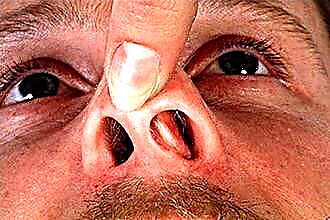Ear barotrauma is a more or less severe damage to the hearing aid, which occurred due to a sharp drop in atmospheric pressure. With mild barotrauma, the body is quite able to quickly cope on its own. After the pressure inside and outside the ear has equalized, the symptoms disappear after a while. But sometimes barotrauma leads to quite unpleasant consequences. Therefore, in situations where sudden changes in pressure are predictable, it is better to take preventive measures.
Main reasons
 Most often, mild barotrauma occurs during airplane flights. Ear pain and discomfort during takeoff or landing is one of the reasons many people do not like to fly. The appearance of these symptoms occurs due to the structural features of the ear, which has an internal cavity behind the eardrum. Under normal conditions, the air pressure on both sides of the eardrum is the same. This makes it possible to hear sounds well.
Most often, mild barotrauma occurs during airplane flights. Ear pain and discomfort during takeoff or landing is one of the reasons many people do not like to fly. The appearance of these symptoms occurs due to the structural features of the ear, which has an internal cavity behind the eardrum. Under normal conditions, the air pressure on both sides of the eardrum is the same. This makes it possible to hear sounds well.
If the pressure from the outside begins to increase, the air pressure on the eardrum increases and it is pushed inward. This situation arises:
- when the plane is taking off;
- when taking a high-speed elevator;
- when deep diving;
- when going uphill quickly by car, etc.
If these actions are taken too quickly, the increase in air pressure can even lead to rupture of the tympanic membrane. The risk of bursting is even higher in the event of an explosion or other too harsh and loud sounds produced in the immediate vicinity of the ear.
But a sharp and / or significant increase in internal pressure can also cause barotrauma. This occurs when atmospheric pressure drops suddenly or rapidly. In this case, the air from the cavity of the Eustachian tube begins to squeeze the eardrum outward. In severe cases, it can also rupture and even pour out fluid from the inner ear. This happens especially often if there are sulfur plugs in the ears that block the cavity of the Eustachian tube.
Typical symptoms
 The symptoms of barotrauma can manifest in different ways. With a mild degree, without damage to the eardrum, "lays in the ears" and noise or ringing appears in the head. This is most often experienced by aircraft passengers or divers when diving. To eliminate these symptoms, it is quite enough to perform a simple "blowing" or swallow more often when the pressure changes.
The symptoms of barotrauma can manifest in different ways. With a mild degree, without damage to the eardrum, "lays in the ears" and noise or ringing appears in the head. This is most often experienced by aircraft passengers or divers when diving. To eliminate these symptoms, it is quite enough to perform a simple "blowing" or swallow more often when the pressure changes.
More serious ear barotrauma is when the middle or inner ear is damaged. In most cases, such injuries have to be treated with the help of an otolaryngologist, since in a neglected state they can lead to complications up to complete hearing loss.
Typical symptoms of serious barotrauma are:
- sharp pain in the ears, which is also called "lumbago";
- constant loud noise in the head, possibly ringing;
- dizziness, in case of damage to the inner ear - vertigo (apparent rotation of objects);
- nausea, in severe cases - vomiting;
- with a ruptured eardrum - hearing loss, pallor, sweating.
If one or more of the above symptoms are felt, it is necessary to try to equalize the pressure inside and outside. If the situation arises under water, immediately begin a smooth ascent to the surface.
When blood or fluid is discharged from the outer ear, tilt your head to the same shoulder so that the fluid does not flow inward. If the discomfort and pain do not disappear within a few hours, consult a specialist as soon as possible.
Treatment methods
 In the event that a mild ear barotrauma has occurred, treatment is not required. After the air pressure outside and inside the ear is equalized, all symptoms will disappear within a maximum of 3-4 hours. It is advisable to be at rest during this time and avoid harsh sounds, as well as liquid getting into the ear. You should not actively go in for sports, dive, listen to loud music.
In the event that a mild ear barotrauma has occurred, treatment is not required. After the air pressure outside and inside the ear is equalized, all symptoms will disappear within a maximum of 3-4 hours. It is advisable to be at rest during this time and avoid harsh sounds, as well as liquid getting into the ear. You should not actively go in for sports, dive, listen to loud music.
Recovery from moderate barotrauma can take several days. As a first aid, it is necessary to very carefully clean the ear canal with a cotton swab, put a sterile cotton swab inside and cover the ear with a clean gauze napkin. If the pain is too severe or too severe, pain reliever may be given.
Severe barotrauma, accompanied by bleeding and rupture of the tympanic membrane, requires an obligatory visit to a specialist. On the spot, only first aid can be provided, which consists in carefully introducing a sterile gauze turunda into the ear canal and applying a dry warming compress to the ear. For severe pain, an analgesic or other pain reliever can be given. Provide rest so that bleeding does not increase.
Medical care is primarily concerned with preventing infection of the wound. The otolaryngologist performs a thorough examination and finds out if there is any internal bleeding in the ear cavity. It then thoroughly cleans and disinfects the ear cavity.
A vasoconstrictor drug is instilled into the ear to stop the bleeding faster. The patient is prescribed antibiotics, with severe pain - analgesics. If a complete restoration of the tympanic membrane is required, an operation is performed - myringoplasty.
Possible complications
 With proper first aid and timely access to a doctor, ear barotrauma, even severe, usually goes away without consequences. But if you take the problem lightly and do not pay enough attention to it, rather serious complications may appear:
With proper first aid and timely access to a doctor, ear barotrauma, even severe, usually goes away without consequences. But if you take the problem lightly and do not pay enough attention to it, rather serious complications may appear:
- inflammation of the middle ear, accompanied by severe pain and fever;
- wound infection (with rupture of the membrane), followed by inflammation and suppuration (purulent otitis media);
- perforation or hardening of the tympanic membrane with subsequent hearing loss.
In these cases, hospitalization and long-term and often painful treatment are required.
Therefore, despite its apparent simplicity, barotrauma is a phenomenon that in no case should be ignored. And if it was not possible to avoid its appearance, you must carefully monitor your condition until all symptoms disappear or the provision of qualified medical care.
How to avoid ear barotrauma
 Preventive measures that can prevent barotrauma of the ear are simple enough. But they must be done correctly, carefully and on time. So in case of a sharp explosion or sudden noise, you must immediately open your mouth. The sound wave often takes several seconds to reach the ear, especially if there is some distance to the sound source. This technique is often used by gunners and demolition men to prevent rupture of the eardrum.
Preventive measures that can prevent barotrauma of the ear are simple enough. But they must be done correctly, carefully and on time. So in case of a sharp explosion or sudden noise, you must immediately open your mouth. The sound wave often takes several seconds to reach the ear, especially if there is some distance to the sound source. This technique is often used by gunners and demolition men to prevent rupture of the eardrum.
When traveling in an airplane during takeoff and landing, you must periodically open your mouth and swallow saliva. You can ask for a glass of water or juice and drink it in small sips. A regular lollipop or chewing gum works well. Of course, these measures will be ineffective in case of abrupt pressurization of the cockpit, but in normal flight mode they are quite enough.
If the ears are still "blocked" due to the pressure drop, you can use the technique that divers are sure to teach before the first dive - blowing.
There are several effective ways to do it:
- after a deep breath, close your mouth and tightly pinch the nostrils and gently exhale;
- swallow saliva with tightly pinched nostrils;
- swallow similarly to the previous exercise, but exhale at the same time.
 The result of blowing is that the tympanic membrane returns to its place, and the air pressure on both sides of it is equalized. Deep diving should be done slowly, as barotrauma can cause disorientation, which is very dangerous in the aquatic environment.
The result of blowing is that the tympanic membrane returns to its place, and the air pressure on both sides of it is equalized. Deep diving should be done slowly, as barotrauma can cause disorientation, which is very dangerous in the aquatic environment.
It should also be remembered that the purging should be done very carefully. Performing it too harshly can also injure a delicate ear.
Therefore, it is necessary to start the exercise with medium intensity. If after several times it does not help, then you can slightly increase the exhalation. But in no case should you panic and blow too much. Symptoms may subside in a few minutes. So it is worth waiting a little and, if necessary, repeat the exercise again or perform it in another way.



